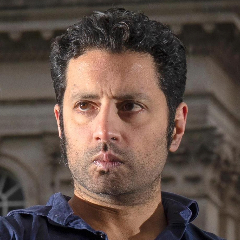You are not currently logged in. Please create an account or log in to view the full course.
Knowledge and its Analysis
- About
- Transcript
- Cite
What is Knowledge?
In this course, Dr Arif Ahmed (University of Cambridge) explores the question ‘What is knowledge?’. In the first module, we introduce the idea of ‘analysing’ knowledge and arrive at the classical, tripartite definition of knowledge as justified true belief. In the second module, we introduce a series of examples known as ‘Gettier cases’ that seem to undermine the analysis of knowledge as justified true belief. In the third and fourth modules, we explore several analyses of knowledge that attempt to get round the Gettier problem, and show the advantages and disadvantages of each, before turning in the fifth question to the possibility that there is no satisfactory analysis of knowledge, and that we should change our approach entirely. This module includes three such new approaches – that of W. V. Quine, that of Edward Craig, and that of Timothy Williamson.
Knowledge and its Analysis
In this module, we think about the concept of knowledge and the analysis of a particular category of knowledge called ‘propositional knowledge’ (also known as ‘knowledge that’). In particular, we focus on: (i) the distinction between different kinds of knowledge – knowledge that (“I know that Napoleon died in 1824”), knowledge by acquaintance (“I know London”) and knowledge how (“I know how to ride a bicycle”); (ii) the relationship between being able to do something and knowing how to do it; (iii) the relationship between knowledge that and knowledge how; (iv) the idea of knowledge as a true belief; (v) the idea of ‘analysing’ a concept, i.e. identifying the necessary and sufficient conditions; (vi) the relationship between ‘knowing’ something implicitly and being able to put it into words; (vii) the truth condition for knowledge; (viii) the belief condition for knowledge; and (ix) the justification condition for knowledge, which completes the classical (tripartite) analysis of knowledge as a justified true belief.
Cite this Lecture
APA style
Ahmed, A. (2021, January 02). What is Knowledge? - Knowledge and its Analysis [Video]. MASSOLIT. https://massolit.io/courses/what-is-knowledge/beyond-the-analysis-of-knowledge
MLA style
Ahmed, A. "What is Knowledge? – Knowledge and its Analysis." MASSOLIT, uploaded by MASSOLIT, 02 Jan 2021, https://massolit.io/courses/what-is-knowledge/beyond-the-analysis-of-knowledge

